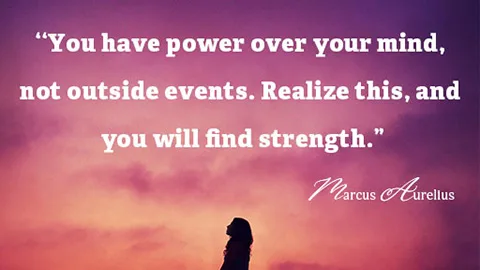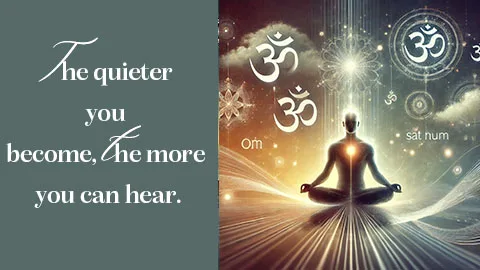
Why Should You Meditate?
What is Meditation?
Have you ever felt like your mind is on overdrive, bouncing from one thought to another? What if there was a simple way to quiet that inner chatter and bring some peace to your day?
Meditation is exactly that—a tool to help us clear the mental clutter and find clarity. At its core, it’s the practice of focusing your mind and calming your body, creating space to be fully present in the moment. Whether you’re looking for stress relief, better focus, or a boost in creativity, meditation can make a real difference in how you experience life.
Why Should You Meditate?
So, why should you even bother with meditation? Is it really worth it?
Here’s why:
- Stress Reduction: Meditation has been shown to lower cortisol levels (the stress hormone), helping you handle life’s challenges with more ease.
- Improved Focus: It trains your mind to stay present, which can boost your productivity and sharpen your concentration.
- Mental Clarity: Meditation allows you to clear out the mental noise, helping you make better decisions and think more creatively.
- Emotional Balance: It helps you process and manage your emotions, leading to greater emotional intelligence and resilience.
- For your mental health: Studies have shown that meditation can help reduce symptoms of anxiety, depression, and stress. It allows you to observe your thoughts and emotions without getting swept away by them.
As Lao Tzu said, “To the mind that is still, the whole universe surrenders.” When you quiet your mind, you create space to connect with yourself on a deeper level. Meditation helps you process emotions, heal past trauma, and develop emotional resilience.
My Personal Experience with Meditation
At first, I thought meditation was something only for monks sitting in the Himalayas, calm and serene, in perfect lotus positions. It looked peaceful, almost romantic. So, I decided to try it myself.
When I first tried meditation, it felt like I was trying to meditate like those monks I’d seen in documentaries—sitting serenely in perfect lotus positions, breathing peacefully. It all seemed so calming and romantic. But when I tried it myself, reality hit. Sitting cross-legged for just a few minutes felt like torture! My legs were sore, and my mind wouldn’t stop racing. Thoughts popped up like, “Did I see my neighbor today?” or “Why is this wall so gray?” I couldn’t stop them.
That’s when it clicked: meditation isn’t about stopping your thoughts. It’s about listening to them without getting caught up in the chaos. When you meditate, you start to recognize the mental clutter—thoughts that are random, distracting, or unimportant. It’s like walking into a messy house and not knowing where to begin. But instead of giving up, you start cleaning it up piece by piece. That’s what meditation does for your mind.
At first, it was frustrating. But after practicing for a while, I noticed something amazing. Even though I had a good job, supportive friends, and a loving family, I still felt something was missing. Meditation became the tool I needed to come back to myself, organize my thoughts, and heal unprocessed emotions. I realized I had unhealed trauma and negative energy I needed to deal with.
Now, after practicing meditation regularly, I’ve found that I’m more creative, more focused, and more calm. Instead of a million random ideas, I now have clarity and can focus on the important ones. My mind feels less cluttered, and I’m more productive. Meditation didn’t just improve my mental well-being; it also helped me connect more deeply with myself and others.
How to Meditate: A Beginner’s Guide
Starting a meditation practice can feel overwhelming, but it’s actually simple once you break it down. Here’s a basic guide to help beginners get started:
- Choose a Comfortable Space
Find a quiet, comfortable spot where you won’t be disturbed. It could be a corner of your room, a park, or even at your desk. The goal is a peaceful environment. - Get into a Comfortable Position
You can sit on a chair, cushion, or floor with your spine straight. Keep your hands resting on your knees or in your lap. You can also meditate lying down, but be cautious not to fall asleep. - Focus on Your Breath
Close your eyes and begin to pay attention to your breath. Inhale deeply and exhale slowly. Focus on the sensation of the breath entering and leaving your body. This helps anchor your mind and bring it into the present moment. - Let Thoughts Come and Go
As you meditate, you may notice thoughts popping into your mind. This is perfectly normal. Instead of engaging with them, acknowledge them and gently return your focus to your breath. Meditation isn’t about forcing your mind to be empty—it’s about observing and letting go of distractions. - Start Small and Build Gradually
If you’re a beginner, start with 5-10 minutes of meditation each day. As you get more comfortable, you can extend your sessions to 20-30 minutes. The key is consistency. - Use Guided Meditations (Optional)
If you’re unsure where to start, you can use guided meditations. There are plenty of apps and online resources where meditation experts will guide you through the process.
For me, meditation works best when I lie down in a comfortable position with my eyes closed, listening to guided meditations. You can find great ones on YouTube with music and a voice that resonates with you.
The Origins of Meditation
Meditation has ancient roots, originating thousands of years ago in various cultures, primarily in the East. Its beginnings are deeply intertwined with spiritual and religious practices, especially in Hinduism, Buddhism, and Taoism.
- Hinduism: The earliest records of meditation come from the Vedas (circa 1500 BCE), which are the foundational scriptures of Hinduism. Meditation was a method to achieve spiritual awakening and unite with the divine.
- Buddhism: The Buddha (around 500 BCE) emphasized meditation as a means to achieve enlightenment, outlining various techniques to calm the mind and overcome suffering.
- Taoism: In ancient China, Taoist practices, including meditation, focused on finding harmony with the Tao (the way of the universe), promoting peace and balance.
Meditation in these early traditions was aimed at spiritual growth, self-realization, and understanding the nature of existence. Over time, meditation has evolved and adapted, now widely practiced for its mental and physical benefits beyond religious contexts.
Modern Meditation: The Secret of Successful People
One thing many successful individuals have in common is a commitment to meditation. It’s more than a relaxation tool—it’s a foundation for their success. While the list is long, here are some of the most influential people, who use meditation as part of their practice to boost mental clarity, creativity, and productivity:
- Bill Gates: Gates meditates daily, calling it a mental exercise that enhances clarity and focus.
- Katy Perry: The pop star meditates regularly, sharing that it helps her reset and recharge amidst a demanding career.
- Jennifer Aniston: Aniston emphasizes the importance of a daily meditation routine, saying she notices a big difference in her mood and productivity when she practices.
- Keanu Reeves: The beloved actor has shared that meditation has helped him find balance and serenity in a chaotic world.
10 Best Meditation Quotes
“The soul always knows what to do to heal itself. The challenge is to silence the mind.” – Caroline Myss
“The mind is everything. What you think you become.” – Buddha
“Meditation is the discovery that the point of life is always arrived at in the immediate moment.” – Alan Watts
“When you let go of the things that you don’t need, your life is full.” – Thich Nhat Hanh
“In the process of letting go you will lose many things from the past, but you will find yourself.” – Deepak Chopra
“The quieter you become, the more you can hear.” – Ram Dass
“Meditation brings wisdom; lack of meditation leaves ignorance. Know well what leads you forward and what holds you back, and choose the path that leads to wisdom.” – Buddha
“To understand the immeasurable, the mind must be extraordinarily quiet, still.” – Jiddu Krishnamurti
“Peace comes from within. Do not seek it without.” – Buddha
“Your task is not to seek for love, but merely to seek and find all the barriers within yourself that you have built against it.” – Rumi



